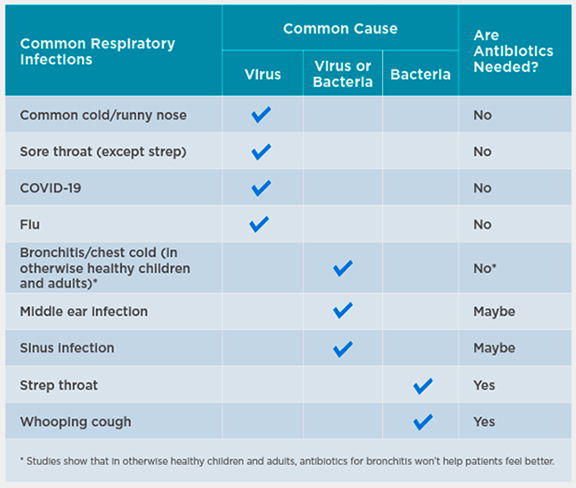SPRINGFIELD – The Illinois Department of Public Health (IDPH) will observe U.S. Antibiotic Awareness Week November 18-24, 2024. The annual event is intended to increase public knowledge about the importance of careful use of antibiotics in order to prevent antimicrobial resistance, where bacteria and other germs develop an immunity to the drugs that were designed to fight them.
“Antibiotics are powerful, life-saving medications used to treat serious bacterial infections,” said IDPH Director Dr. Sameer Vohra. “However, overuse or misuse of these medications can cause them to no longer work, contributing to antimicrobial resistance. Antimicrobial resistance is a serious public health concern leading to drug-resistant illnesses that have fewer effective therapies. Antibiotic Awareness Week is a good reminder for Illinois residents to use antibiotics only when necessary and carefully follow your provider and pharmacist’s instructions in their use.”
Vohra notes that antibiotics do not treat viruses, such as those that cause colds, the flu, RSV, or COVID-19. Use of antibiotics when not medically recommended can increase the likelihood of antimicrobial resistance. The Centers for Disease Control and Prevention (CDC) estimates that each year, more than 2.8 million antimicrobial-resistant infections occur in the United States, and more than 35,000 people die as a result.
Combatting antimicrobial resistance is a year-round focus of IDPH, which works to educate providers and the public on best practices for the use of antibiotics. This year, the department sponsored a milestone tenth annual conference on the subject, bringing experts from around the state and nation together in July in Lisle, Illinois, for sessions on how to promote antimicrobial stewardship in health care facilities, and combatting health inequities that could leave some people more vulnerable to drug-resistant illness. Nearly 300 people attended this year’s event, with the majority expressing that they would recommend that their colleagues attend future summits as well. You can learn more about IDPH’s antimicrobial stewardship efforts at the IDPH Antimicrobial Stewardship page.
The theme of this year’s observance is “Fighting Antimicrobial Resistance Takes All of Us,” a message aimed at health care professionals and the general public. This message focuses on a “One Health” approach to fight antimicrobial resistance, which recognizes the health of people is closely connected to the health of animals, plants, and their shared environment. The overall goal is to get everyone working together to improve the global prescribing and use of antimicrobials such as antibiotic and antifungal drugs. The CDC estimates that as many as 30 percent of prescriptions for antibiotics are not medically necessary, representing approximately 47 million prescriptions.
The CDC encourages practitioners to talk with patients about when antibiotics are, and are not, appropriate, what other steps they can take to feel better, and when to seek additional care. The CDC has put together an easy reference chart to further explain when antibiotics should and should not be used.

In addition to working with providers on best practices, IDPH also reminds the general public of the important role they can play in preventing antimicrobial resistance. Good hygiene can reduce infections and lower the risk of drug resistance. Recommended preventive measures include regular hand-washing with soap and water (or using a hand sanitizer that’s at least 60% alcohol); covering coughs and sneezes; staying home when sick; and getting recommended vaccines, including flu and COVID shots.
As part of the observance of U.S. Antibiotic Awareness Week, Governor JB Pritzker issued a proclamation and recorded a video to encourage Illinoisans to learn more about antimicrobial resistance and the steps they can take to protect themselves. The governor notes in the video that “it takes ALL of us to be successful in fighting antimicrobial resistance.” You can see the video here. You can see the governor’s proclamation at antibiotic-awareness-week-proclamation-2024.pdf
